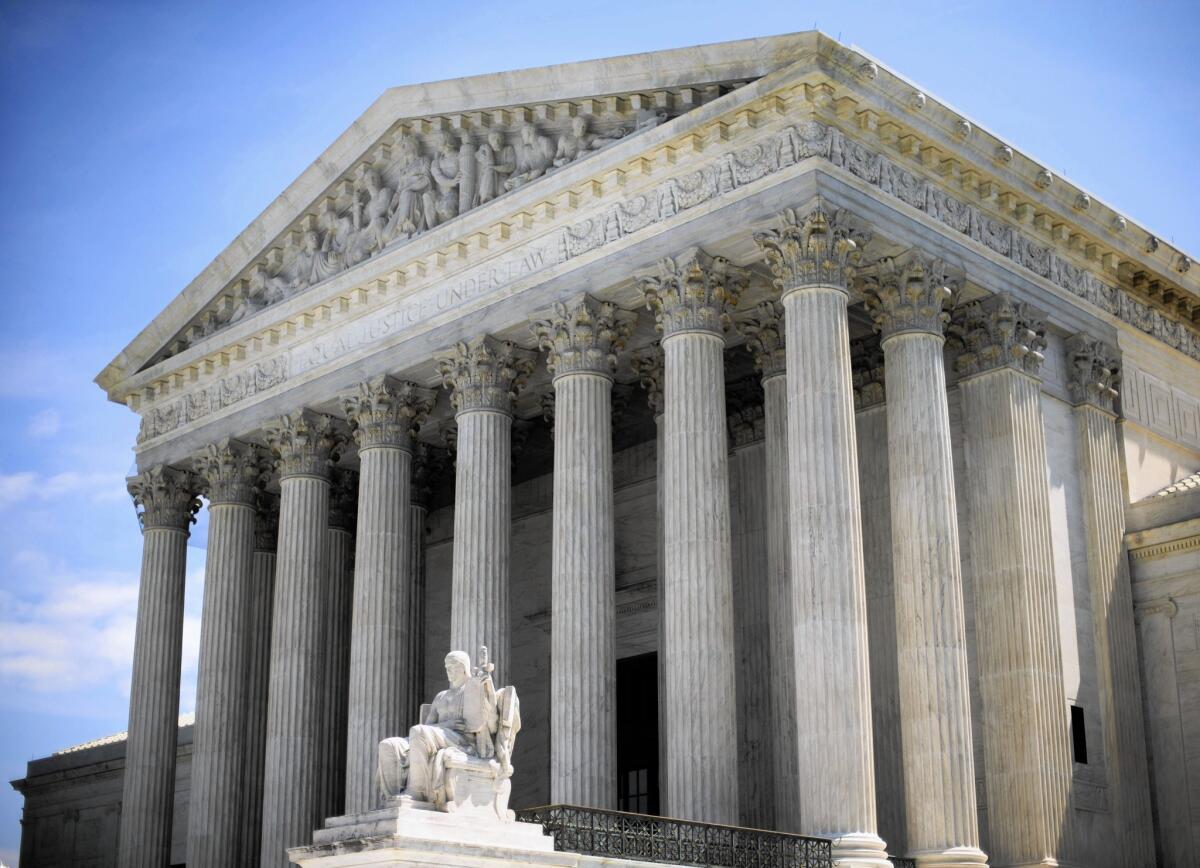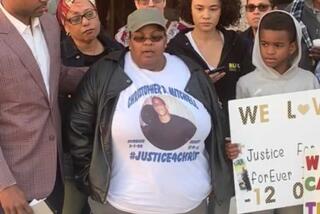$5.7-million verdict against 2 LAPD officers will stand, Supreme Court rules

The Surpeme Court building
- Share via
Reporting from Washington — The Supreme Court has let stand a $5.7-million judgment against two Los Angeles Police Department officers for shooting a fleeing gang member who they believed was carrying a gun.
After considering the case for weeks, the justices without comment turned down an appeal from Los Angeles City Atty. Michael Feuer.
The city’s lawyers said the two police officers believed the fleeing suspect posed a danger, and therefore were justified in shooting to stop him.
NEWSLETTER: Get the day’s top headlines from Times Editor Davan Maharaj >>
Robert Contreras, the suspect, survived the shooting in 2005 but was left paralyzed. He pleaded no contest to attempted murder in a drive-by shooting and served time in prison.
But he then sued the two police officers who shot at him, alleging an excessive use of force. And to the surprise of the Los Angeles Police Department and the City Council, he won a large jury verdict.
In his appeal to the high court, city attorney argued that when viewed from “the officers’ on-scene perspective, not with 20-20 hindsight, their use of force was entirely reasonable under the 4th Amendment.”
But a federal judge and the 9th Circuit Court of Appeals said a jury had heard the evidence and concluded Contreras was carrying a cellphone -- not a gun -- and that he was shot in the back running down an alley near 61st Street and South Broadway. In the past, the Supreme Court has said police officers may use deadly force to stop a fleeing suspect only if he poses a threat to the officers or the public.
While LAPD Officer Julio Benavides said he called out “Stop! Police!” before shooting at the fleeing man, two other officers testified they did not recall hearing any such warning.
In recent years, the Supreme Court has thrown out a series of lawsuits against police for using force to stop a fleeing vehicle. In those cases, the justices decided the speeding vehicle itself posed a danger to the public.
But the justices have at times allowed “excessive force” suits against the police for shooting at a fleeing person who is not a danger to the officers or to the public.
On Twitter: @DavidGSavage
ALSO
Supreme Court appears to give states, localities green light on gun controls
Supreme Court appears ready to shake up how election districts are drawn
Affirmative action at universities in doubt as U.S. Supreme Court hears arguments
More to Read
Sign up for Essential California
The most important California stories and recommendations in your inbox every morning.
You may occasionally receive promotional content from the Los Angeles Times.











